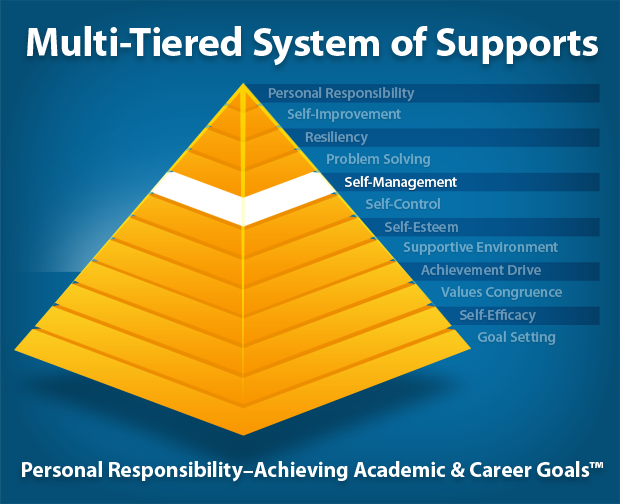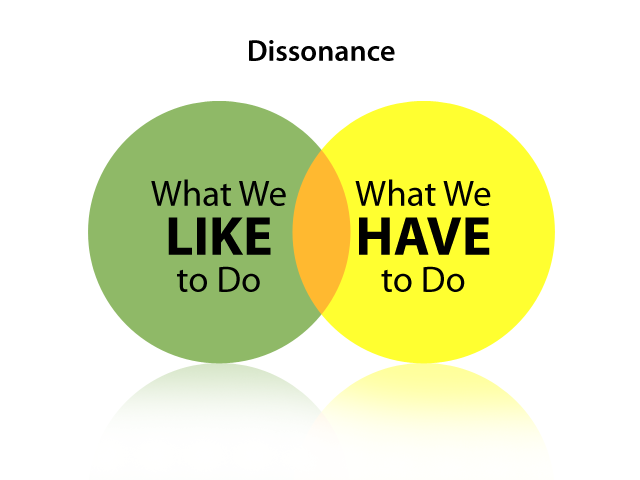
Self-management is the amount to which people manage their own time, talents and abilities and use these on clear, achievable goals.
MTSS and Self-Management
Multi-Tiered System of Supports, or MTSS, is a term used to describe an evidence-based model of schooling that uses data-based problem solving to integrate academic and behavioral instructions and intervention (Florida’s MTSS Project). This definition brings together the worlds of academic instruction and behavioral intervention. Self-management is one of those social/emotional skills that bridges both the academic and behavioral worlds. By definition, the skill to manage one’s time, talents and abilities and use these to achieve desired goals ties directly into the MTSS model of providing supports to improve academic performance. Without self-management skills, academic success is an impossibility.
What I Like To Do vs. What I Have To Do
There are many reasons why people fail to manage themselves. Excuses such as lack of a purpose, lack of education, lack of money, and lack of time are all very common ways of explaining one’s failures.
A simple way of looking at motivators that help in self-management is through the dissonance factor. Dissonance is a lack of harmony, or conflict. Dissonance results when what we like to do is different from what we have to do.
When there is little overlap or crossover between the two, much discomfort, frustration, and stress results. To get the best out of ourselves, self-management aims at trying to reduce the discomfort, stress and frustration caused by the differences between what we like to do and what we have to do.
Strengths and Self-Management
One of the key parts of successful self-management is an understanding of one’s strengths. A strength is a quality of being strong; an ability to do something that others cannot do very well. A strength, then, is an ability to do something very well.
Everyone has strengths. The problem is how do you know what your own are? What do you seem to have a natural ability to do? These questions are key to understanding your own strengths. To understand your strengths, you must look inside yourself. The term that best describes this is self-awareness. Self-awareness is having knowledge about yourself.
Self-awareness is not self-concept. The difference between the two is that self-awareness deals more with the act of becoming aware of yourself as separate from others, while self-concept relates to how good or bad you feel about yourself.
Early Development of Self-Awareness
Self-awareness is key to understanding your strengths. To understand self-awareness, it helps to understand how people develop the basic abilities that serve as the basis for self-awareness. Every infant is born without a sense of self. Babies do not know the difference between themselves and the rest of the world.
Learning self-awareness starts with experiencing new things around us. Keep in mind that self-awareness is nothing more than your own thoughts about yourself. These thoughts may be correct or they may be totally wrong.
A correct sense of self-awareness is key to good self-management. Why? Because when you are fully aware of your strengths as well as your limitations you can learn to use your strengths to help you develop good self-management skills. A solid sense of self-awareness is important for success.
You can sign up for a free trial to explore our self-management unit in our Personal Responsibility program.


